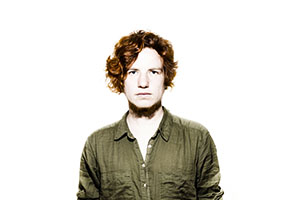
“Sometimes I’m addressed as ‘Miss’”, says Rein Anspach (20), a Linguistics student and Chair of Expreszo, the lobby for young gay, lesbian, bisexual and transgender people. “I really hate that.”
“It doesn’t make any difference if you say you’re a woman”, says Iona Varga (22), a Physics student. “If you’re registered as a man in the system, that’s how you’re treated. It’s very frustrating.”
Anspach adds: “I’d rather be categorised as ‘male’ hundred times. But I’m more concerned about the morals of this tale. Every time I have to choose, I wonder whether it’s relevant.”
“The views on gender and sexuality are very limiting”, agrees Isabel Hoving, Leiden University’s diversity officer. “There are all sorts of possibilities, in appearance and emotionally, for being male and female and everything in between. And we have a very blunt, dualistic system that doesn’t match what men or women are.”
As Robin Camille Mier (25, Japan Studies) explains, transgenders are confronted with the difficulties of this system at university too. “The attendance lists handed to lecturers are produced by the university registration system Usis. They always state your biological status prior to your transition. You can’t alter your name or gender in it yourself, which means you’re outed at the beginning of every course in front of the whole group. A lecturer of a transgender friend decided that he did not need to address the student as ‘he’ because the lecturer had seen the former first name in Usis. That’s just horrible. It means you’re embarrassed at every tutorial.”
“If you adjust the system to suit the needs of a small group, it will work out better for everybody”, insists Hoving. “There are hardly any gender-neutral toilets in the Netherlands, whereas they are quite normal in Sweden. If you’re a parent and need to take your child to the loo, you won’t feel embarrassed. And fathers don’t need to worry about changing their kids’ nappies.”
“It’s very embarrassing to have to use gender-specific toilets when you are in transition”, agrees Anspach. Mier adds: “The focus group highlighted this problem two years ago. In the meantime, a new toilet block has been installed at Lipsius – it could easily have been made gender-neutral. It angers me that the university isn’t capable of changing even such little things. It’s hard enough as it is for a young transsexual to find yourself.
What needs to happen before the toilets are changed? “The Board needs to approve”, Hoving remarks. “Real Estate doesn’t have any problem with it. They say: ‘We’ll do anything you want.’ They’re very pleasant people. But the change is bottom-up, that’s why it takes quite a long time.”
When asked, Caroline van Overbeeke, the university spokesperson, reveals that the Board is working on a pilot project. “First, we want to know what everyone thinks about the gender-neutral toilets at Plexus and University College. The pilot will be evaluated in June and nothing will be done before then.”
The argument that there are only a few transsexual students at the university is not valid, in Hoving’s opinion. “We need a wealth of understanding at the university. Parochialism will never lead the bright ideas that science needs. A university should not fall prey to tunnel vision.”
There’s no need to be petty-minded
 Robin Camille Mier (25, Japan Studies): “At first, it was hard to discover my identity as a transgender person. Initially, I felt I had to be a very traditional male. You see, if you’re transgender, you start to worry that you’re not transgender enough and that people will think you should get back to where you belong. I’ve managed to let it go in the past few years. I realised that you can rise above your gender, you don’t need to stay in any category. Just because I’m a man, it doesn’t mean to say I have to do only guy stuff. If I wake up feeling more feminine tomorrow than I feel today, that’s OK with me.
Robin Camille Mier (25, Japan Studies): “At first, it was hard to discover my identity as a transgender person. Initially, I felt I had to be a very traditional male. You see, if you’re transgender, you start to worry that you’re not transgender enough and that people will think you should get back to where you belong. I’ve managed to let it go in the past few years. I realised that you can rise above your gender, you don’t need to stay in any category. Just because I’m a man, it doesn’t mean to say I have to do only guy stuff. If I wake up feeling more feminine tomorrow than I feel today, that’s OK with me.
“I’d like to help transsexual students at the university. I do lots for the transgender community by looking after our interests and I attend the focus groups. I feel very uncomfortable and quite de-humanised to have to walk into toilets that say that you’re either male or female, when you don’t belong to either. You don’t say to wheelchair users: why don’t you take the stairs? I think it’s stupid that the university is lagging so far behind in this area.
“Besides, there’s a chance you’ll meet one of your lecturers or fellow students in the loos. I was outed unintentionally when I met my tutor in the loos. It was a really horrid experience.”
At last, no suit
 Iona Varga (22, a technical physics student at the University of Applied Sciences): “When I was a child, I saw a dress in a shop window and thought it would be fun to wear it. It was only in the last year of primary school, when everyone is assigned a role as a girl or a boy, that I realised that the role didn’t match my feelings.
Iona Varga (22, a technical physics student at the University of Applied Sciences): “When I was a child, I saw a dress in a shop window and thought it would be fun to wear it. It was only in the last year of primary school, when everyone is assigned a role as a girl or a boy, that I realised that the role didn’t match my feelings.
My parents were lovely when I came out. My mum said she’d always had her suspicions. People used to know me as a gay boy. It was a really difficult time. I wore black practically all the time and I started self-harming. I felt trapped when I got a boyfriend when I was seventeen. I broke up with him and wanted to transition. I met my current partner that same year. He accepted me as I was, that’s why I postponed my transition.
“Nevertheless, at the beginning of this year, I decided to go for my feminine side. I’m still waiting to hear when I’ll be given my hormones, but it already feels as if I’ve been to a party I didn’t enjoy and I can finally take off my suit. I now dress as a woman, but I notice how people watch me. How should I talk? Do I let others go first, am I social enough? People want some confirmation of my gender identity.
“It’s annoying to be stared at in the train. I live in a neighbourhood where many people with a Moroccan or Turkish background live. They sometimes call me names but I just let it wash over me.”
Not all of them like it
 Rein Anspach (Linguistics, 20): “When I was 17, I started taking hormones. At first, it made me a bit restless. I lost some control over my voice and became more muscular. It’s like going through adolescence again. You think everything will be easier, but actually it just gets harder because it becomes visible to the people around you. Not all of them like it.
Rein Anspach (Linguistics, 20): “When I was 17, I started taking hormones. At first, it made me a bit restless. I lost some control over my voice and became more muscular. It’s like going through adolescence again. You think everything will be easier, but actually it just gets harder because it becomes visible to the people around you. Not all of them like it.
“Once I was at university, I had to get used to my new role in society. I had to quickly learn how men behave among themselves. At Asopos de Vliet, the rowing club, I had to tick a box to say whether I was male or female. I really didn’t want to be put on an all-girl team, but it was complicated because I was still a woman in legal terms. But everyone was quite nice about it: in the end, I was allowed on a male team. But socially it didn’t suit me.
“At university, being a transgender is generally accepted. There’s the network, LU Pride, and there are focus groups and a diversity office. But it would be nice if the lecturers could be informed more discreetly. I refused to fill in the National Student Survey. I was obliged to indicate whether I was male of female. I don’t think it’s a valid argument to say it’s only about genitals; after all, you don’t use them to fill in the questionnaire.
In transition
Being transgender, or having gender dysphoria, means that a person feels that his or her psychological gender does not match his or her biological gender. Kirsten Dob from Groningen University Medical Centre explains: “Transgender is an umbrella term for all forms of gender dysphoria. Transsexuality is the most extreme form, and those people really want to change sex. If you ask us for help with that, we’ll first start you on a preliminary process. You’ll need to talk to a general psychiatrist and if he or she diagnoses you with gender dysphoria, you’ll be referred to the gender team. The team decides whether a sex change is an obsession and is really important for your happiness. Then there is an eighteen-month process during which you change physically, using surgery and medication.
“Transsexuality is quite topical at the moment, which helps people learn to accept it. People are prejudiced against the unknown. It’s important to know that people don’t choose to have gender dysphoria and that it causes much conflict, both mentally and physically. Very many people are very frightened, because they think they’ll never be accepted socially.”